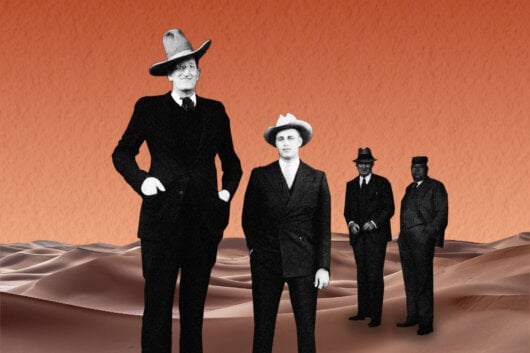Sandbox: Metaverse Economy Will Become Bigger than Real Life?

Since the internet, creating virtual worlds has been stirring the imagination of many. Creating virtual worlds is not new. The term metaverse was coined as early as 1992. Following the recent advances in developing metaverses by the giants of Silicon Valley, the focus on the virtual world blasted. Facebook rebranded as Meta, while Microsoft announced building a metaverse for virtual office solutions. Not to forget gamified metaverses that have been here for decades, like Roblox and Second Life.
No doubt metaverse is the next big thing. By being a combination of multiple elements of technology, including virtual reality and augmented reality, metaverse can reshape the entire interface of the internet.
However, what impact can it have on real and digital lives? In an exclusive interview with DailyCoin, Sébastien Borget, co-founder and COO at community-driven metaverse The Sandbox, shares how virtual worlds can contribute to the economy.
Metaverse economy
In the physical world, the economy is created by circulating various goods and services that hold value and management of the resources. The same processes take place in the virtual world, and blockchain technology enables them to flourish:
"In the metaverse, we can have a digital economy which is based on the production and the sale of digital goods, the assets such as NFTs and digital services such as creating, animating, selling, promoting, curating, discovering, etc. As soon as someone is ready to pay for the time you're willing to spend to do the service in exchange, and they see value for it then - Bingo, you have an economy," explains Borget.
The production and sales of virtual goods influence the economy by creating millions of new creative jobs. To populate the virtual world and create virtual experiences, virtual architects, fashion designers, game and house designers, real estate agents, player coaches, and many more brand new professions will be needed.
"These jobs can be paid, they can hold value, and they contribute back to the overall value of the space, where those people are interacting. It's almost like a new country, a new nation, where the entrepreneur gets rewarded for what they produce," says Borget.
Becoming bigger than the physical world
Borget boldly predicts that the virtual economy of the metaverse will exceed the real economy that we are living in. As the limitation of the physical world bounds the economy, the metaverse is erasing the boundaries. Virtual goods that are produced can be sold immediately and available globally. To enter the virtual economy, only computer and internet access is necessary:
"Imagine buying the virtual land. It's a great comparison. Everyone is familiar with real estate. In the metaverse owning virtual land allows you to build an experience, a game, a house, a museum, an art gallery, a virtual concert, you name it. Your imagination only limits you," tells Borget.
The digital economy on metaverse processes takes less time than in the physical world, so it is becoming more efficient. Also, it is no longer bound by the limitation of raw materials. The NFTs themselves are limited, but the voxel used to create all the content on the metaverse and characters are unlimited. This allows creating an unlimited amount of assets that can be catered to different audiences globally.
The Sandbox took an open and decentralized metaverse approach. It means that digital goods can be moved through different metaverses to accelerate the economy’s growth even more. Goods can be transferred and sold in various marketplaces and benefit the open economy.
"It's almost like buying Nike shoes, and it's only available through the Nike store, and you can only use it in the Nike tennis club. So limited. That's what the centralized virtual worlds are. When you create something on Minecraft, you can only use it in Minecraft. You cannot transfer it to another user. Same from Roblox, same for Meta. In the metaverse the open one, it's no longer a boundary," commented Borget.
The growth in popularity of metaverses could be felt in the results of The Sandbox – in 2021, the number of landowners quadrupled, and the user base is moving to 1.3 million registered wallets, according to Borget.
What does it take for massive adoption of metaverse?
Looking towards the future and the expansion of virtual worlds, Borget reveals the crucial components for the mass adoption of metaverses. Technology itself is not the answer:
"We need to make metaverse that's more culturally rich, immersive, feature both celebrities archie's brands you like, also things that are born in the metaverse: community and people in blockchain space," says Borget.
The social element is crucial in metaverses. The metaverse needs to be fun, have great content, an attractive interface, and engaging game mechanics to catch potential users’ attention, but building a strong community is essential.
Watch the full interview with Sébastien Borget on DailyCoin’s youtube channel:
Read more: https://dailycoin.com/sandbox-metaverse-economy-will-become-bigger-than-real-life/
Text source: DailyCoin.com










